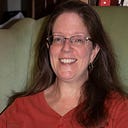Thanksgiving and the true gift of traditions
When my siblings and I were growing up, our mother had great go-to phrases when we complained about our sad lot in life. As soon as one of us started a pity party about how unfair life was, and how there are too many people in this family, she would say, “Who should we leave out, you?”
Our Thanksgiving tradition was an annual setting of the table, rooted in a dependable menu of turkey, stuffing, cranberry sauce (real berries, please), mashed potatoes, creamed onions, green beans, apple pie, pumpkin pie, apple cider, and plenty of time to enjoy all of it. The weather was always cold enough for my brothers to go outside for a game of football with friends and cousins. The first snow of the year might be on the ground, in Northern Virginia there would certainly be snow by Christmas. Our family group at dinner was a good size, with six kids, and sometimes other relatives. We could have walked in and out of a Norman Rockwell painting and not known which was reality. It was a big enough group to learn the meaning of inclusion, a great lesson to carry through life.
Thanksgiving may play understudy for our attention to shopping, but it is the real All-American symbol of the foundation of working for the common good, neighborly trading, and lending a hand in times of need. Each of these were needed to build our economy and our social safety net. They are needed even more to maintain what we have.
There are many things written about the first Thanksgiving in Plymouth Colony in 1621, some by…
